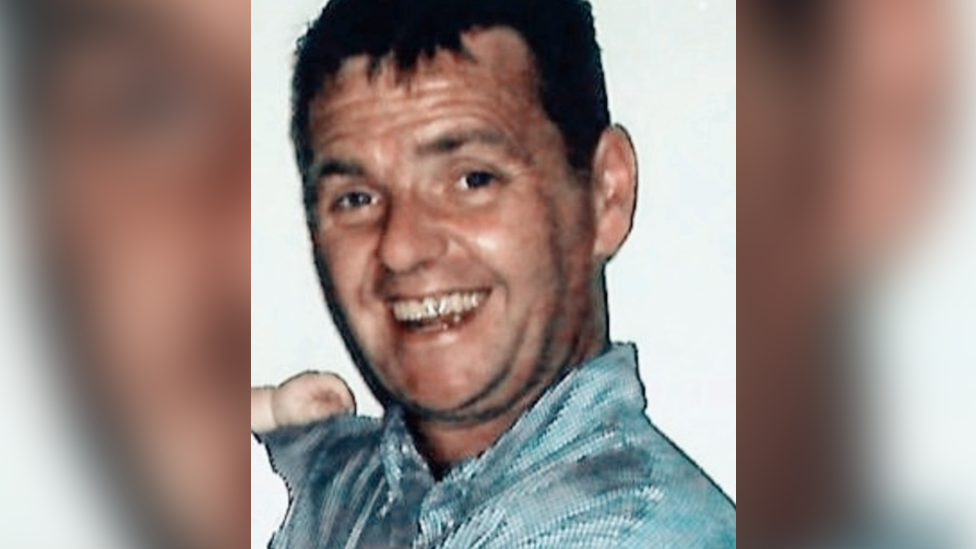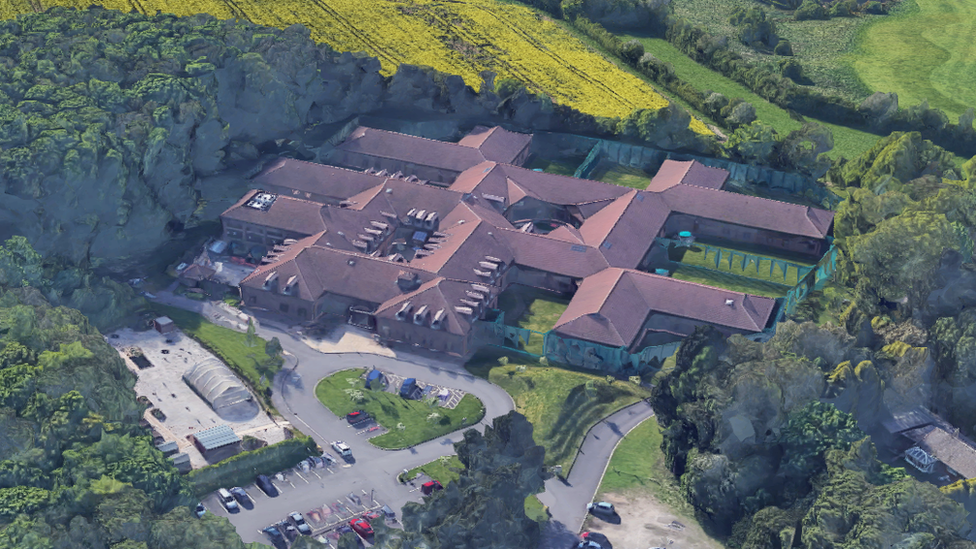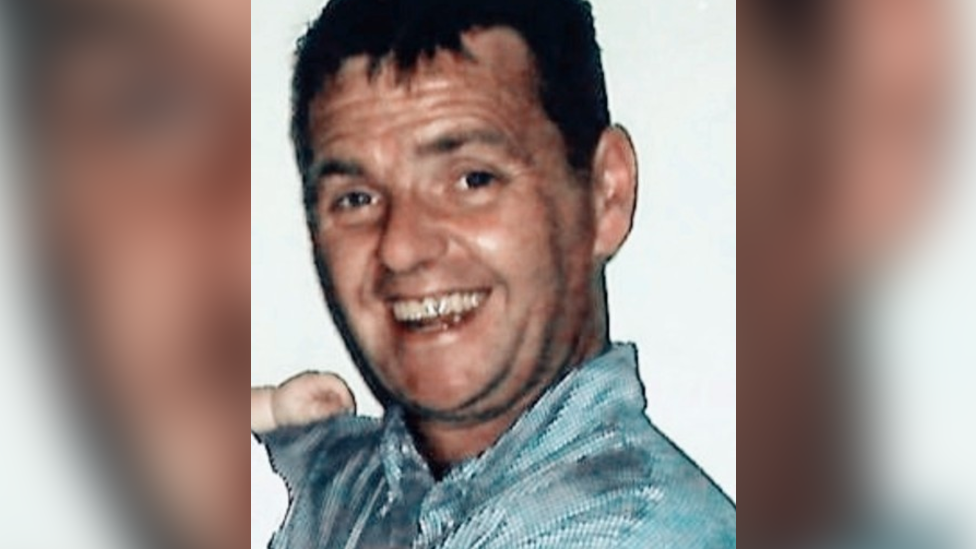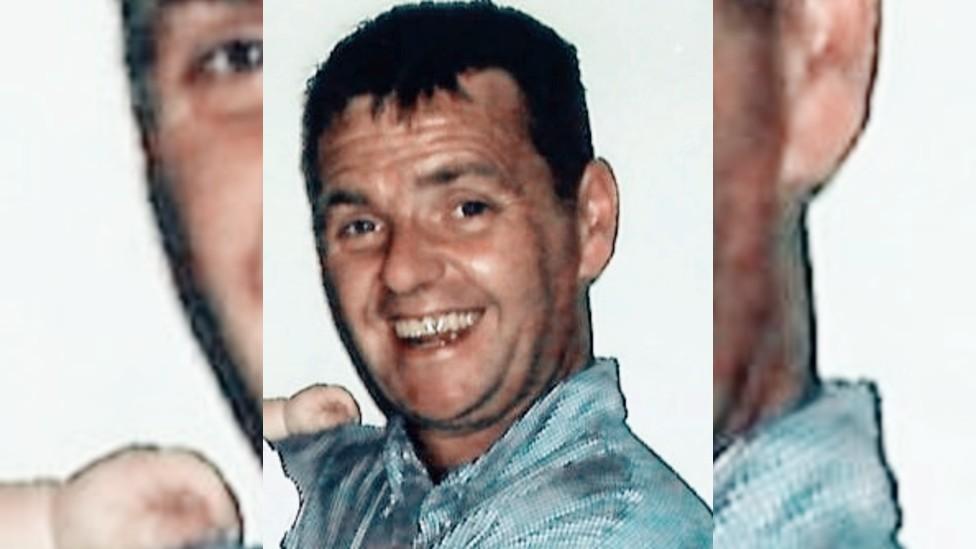Gary Mavin: Staffing issues at mental health unit where patient died
- Published

Gary Mavin told staff at the Priory Hospital he was hearing voices and feared returning home
A mental health unit has said staff shortages may have played a part in failures in aspects of a patient's care before he took his own life.
Gary Mavin died at the Priory Hospital in Nottinghamshire in September 2020.
His inquest previously heard he was paranoid about being hurt by neighbours and feared being sent home.
Experts admitted "opportunities were missed" to review his diagnosis and change his care plan, as well keeping his family were informed.
The inquest resumed earlier after being adjourned in the summer for internal investigations to be completed at the Priory Hospital and Nottinghamshire Healthcare NHS Foundation Trust.
Nottingham's assistant coroner Laurinda Bower quizzed healthcare professionals on their findings and asked why "red flags" in Mr Mavin's behaviour were not picked up sooner.
'Inexplicable'
Mr Mavin, 54, had been taken into Nottingham's QMC hospital after an attempted overdose in August 2020.
The inquest previously heard he was afraid of being sent home because he believed his neighbours wanted to kill him.
The father-of-three, from Hucknall, was then admitted to the Priory Hospital, where he was found with a ligature and told staff he was hearing voices.
Assistant coroner Laurinda Bower asked why QMC staff had not completed an incident report form after Mr Mavin's first overdose or why a further review was not carried out on his mental health before he was discharged.
"It seems inexplicable to me," she added.
Karen Osborne, patient safety investigation lead at Nottinghamshire Healthcare said: "It appears that it hadn't been picked up until the court case which is something we need to amend.
"I don't know why the form wasn't completed. Had it been done [issues] would have been picked up and would have been investigated.
"I do think there was a missed opportunity for more a joint, robust assessment being conducted."
She said an action plan was being put in place to ensure teams understand the need to fill out incident report forms as soon as an issue with care is detected and additional training was being offered to crisis teams.

Mr Mavin had taken an overdose a week before being admitted to the Priory Hospital
Nicola Greenwood, senior investigation manager for Priory Group, said their own investigation found there was a lack of a personalised care and treatment plan and a lack of response from staff when Mr Mavin was found with shoelaces a week before he was found hanged.
Ms Greenwood said patient notes showed a change in his behaviour and while staff reported it, it was not acted upon by his doctor.
"He started reporting hearing voices and there was a significant change," she said.
"There had been change and it needed exploration to consider what factors were causing the issues and how he could perhaps amend the treatment programme to better help and support Gary."
She said the doctor, Dr Moldavsky, believed his diagnosis was correct and may have had "tunnel vision" over this.
Ms Greenwood said his family had also not been invited to be present in meetings with the doctor which should have happened.
Dr Osvaldo Soetsane, clinical director at the Arnold Priory Hospital told the coroner there was no explanation for this other than they had been short-staffed at the time.
He said: "It's not an excuse, but there was a high use of agency staff at the time and Dr Moldavsky was new in the post, but it should not have happened and policies and procedures we have were not used on this occasion."
He listed many changes that had been made at the hospital including a new welcome service for patients so they know where to go for help and support and daily meetings between staff where incidents and observations were discussed.
Dr Soetsane said staff previously felt unable to raise concerns about patient care which had been addressed added they now used fewer agency staff.
He said bathroom doors had also been changed to ensure ligatures could no longer be used on them and 'ligature footpaths' had been created around the hospital so people were aware of the risk areas.
The inquest continues.

Follow BBC East Midlands on Facebook, external, Twitter, external, or Instagram, external. Send your story ideas to eastmidsnews@bbc.co.uk, external.
Related topics
- Published20 July 2021

- Published15 July 2021
